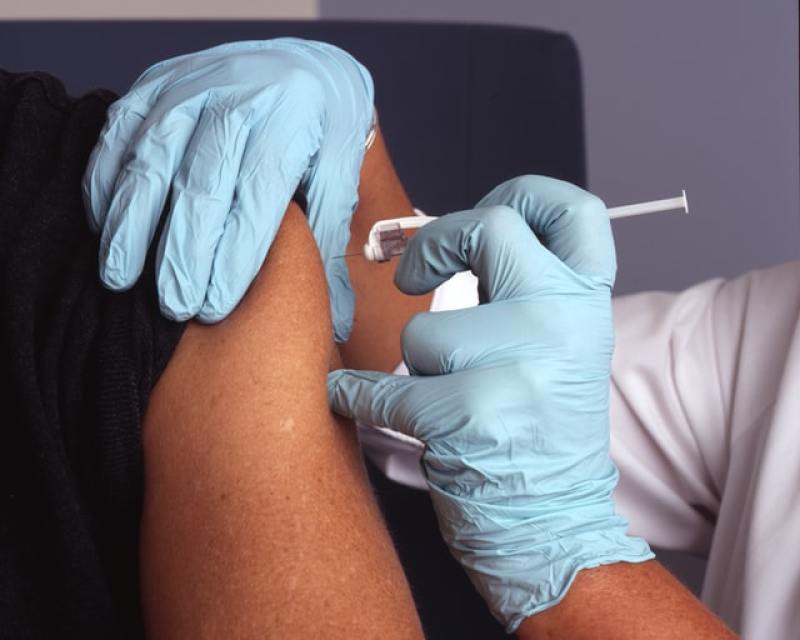
On Friday, hundreds of protesters gathered on the Rutgers University campus to oppose the college's rule that students present evidence of having fully vaccinated against COVID-19 prior to attending on-site classes.
According to My Central Jersey, 300 "medical freedom activists" are protesting Rutgers' mandated COVID vaccination requirement.
"My body, my choice," they yelled, "our kids, our choice," and "it ends now."
"You are not allowing students to make their own decisions," one activist said.
"We as the students should not be put in the position of having to choose between our beliefs and our education," said another.
However, they are not on their own in their protest. Rutgers' vaccination policy has been slammed by conservative lawmakers.
"Let me talk to the doctor and let me decide," Assemblyman Gerry Scharfenberger, R-Monmouth, who has filed legislation against obligatory "vaccine passports," reportedly said.
Sen. Mike Testa, R-Cape May also put the vaccine's efficacy into doubt.
"This vaccine is experimental," he said. "It doesn't do either of the two things a vaccine is even supposed to do. It doesn't prevent you from getting COVID-19. And it doesn't prevent you from spreading COVID-19."
Jersey noted that in Rutgers' campuses, there have been 2,427 COVID-19 cases. According to a recent College Finance poll, 88 % of students want to receive the vaccine, and more than 70% said the vaccination should be mandatory for college students.
Turning Point USA, Young Americans for Liberty, and NJ Stands Up, an organization opposed to coercive medical requirements, staged the protest on Friday.
Why the vaccine passport in colleges?
According to U.S. News, a database kept by the Chronicle of Higher Education suggests that more than 360 public and private universities throughout the United States will "require students" to be vaccinated, with more institutions expected to get on board.
Several large universities like the State University of New York system, have declared vaccine mandates in addition to individual campuses. Others, including the 23-campus California State University system, intend to take precautions until at least one coronavirus vaccine is approved by the Food and Drug Administration.
Dr. Preeti Malani, a professor and chief health officer at the University of Michigan-Ann Arbor said, "If you can ensure a highly vaccinated community, you can get back to a lot of those things safely."
Malani defines the current COVID-19 vaccinations as "safe and effective" based on the facts and the millions of Americans who have previously been inoculated, and she advises students to consider others while thinking about the vaccine.
"I'm a full believer that (colleges) asking students to be vaccinated prior to coming to campus or when they show up on campus is prudent, is safe, is reasonable and well within their rubric of running the campus," says Sheldon H. Jacobson, a computer science professor specializing in public health data at the University of Illinois-Urbana-Champaign.
Jacobson adds that current inoculation requirements against mumps, measles and other illnesses eventually offer a legal basis for mandates including COVID-19 vaccines.
To date, colleges have typically been divided into "four categories: requiring vaccines; offering students incentives to get immunized voluntarily; not requiring the shots; and adopting a wait-and-see approach."
Chris Marsicano, who researched institutional coronavirus reactions as part of his research work at the College Crisis Initiative lab, describes most institutions in the latter group.
The institutions have also utilized the metaphorical sticks and carrots approach to ensure that students were vaccinated before arriving on campus, according to U.S. News.




























